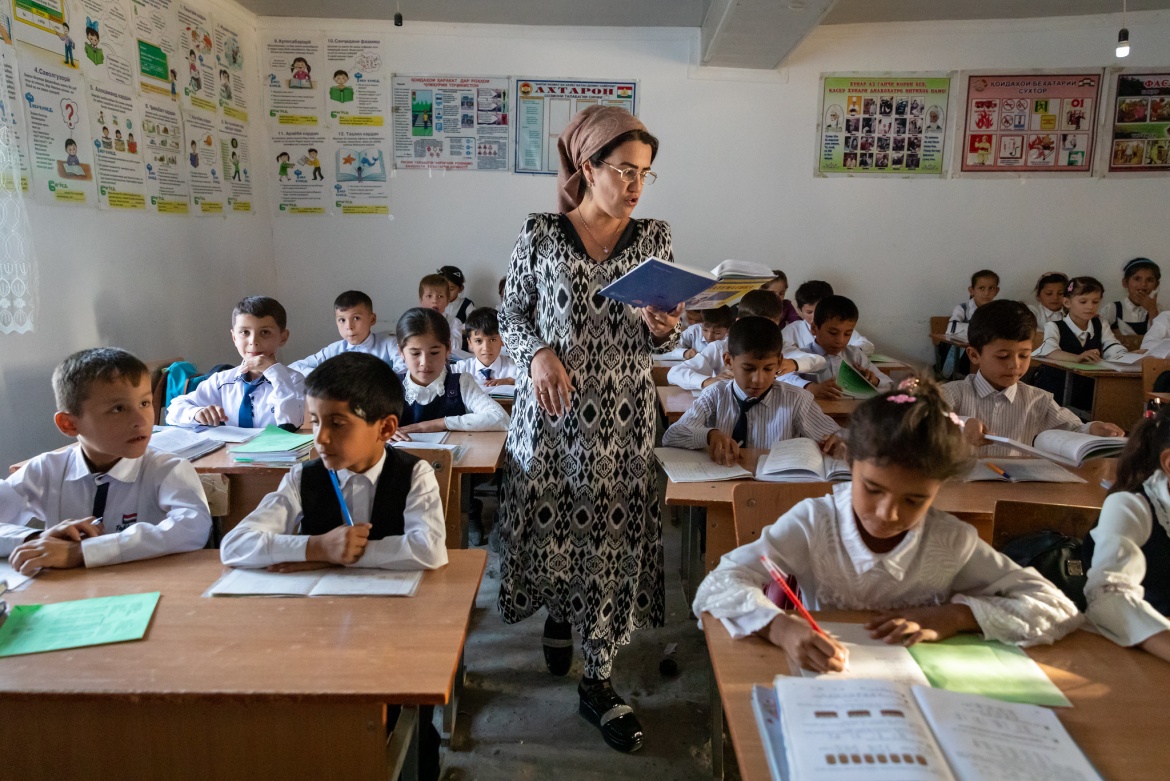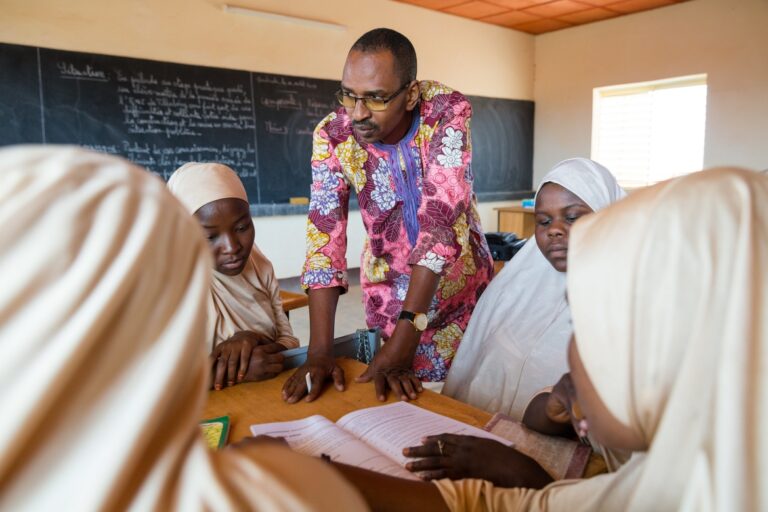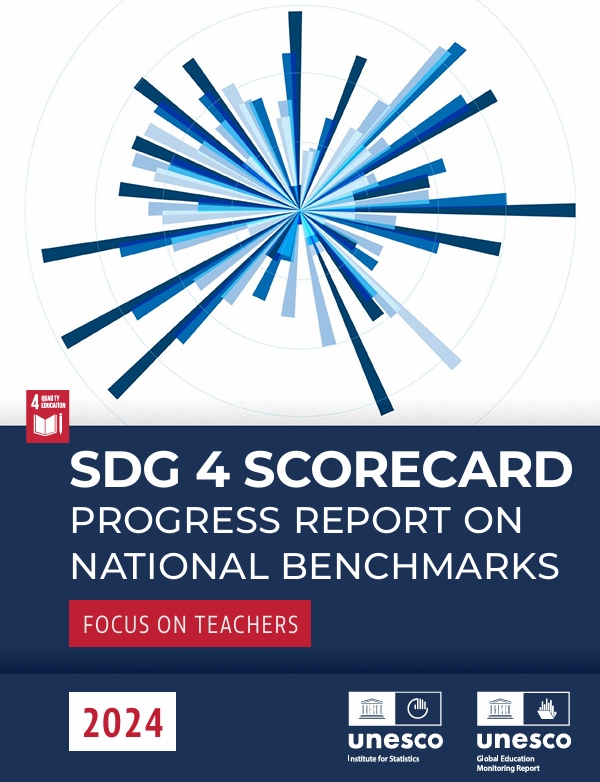Today on World Teacher’s Day, we celebrate teachers around the globe by commemorating the adoption of the 1966 ILO/UNESCO Recommendation concerning the Status of Teachers. This year’s theme is: “The teachers we need for the education we want: The global imperative to reverse the teacher shortage.”
At GPE, we recognize teachers as central to strong education systems and prioritize quality teaching as a focus area.
GPE supports teachers to engage in policy dialogue, at both national and global levels, to address issues of critical importance to them: training, availability of teaching aids and materials, pedagogical support, curriculum, recruitment and career development.

Inclusive policy dialogue requires teachers
Education system transformation happens when stakeholders change how they interact with one another and purposefully align their actions.
But policy dialogue can’t be effective without the participation of teachers who, more than anyone else, can bring the realities of the classroom to the attention of decision makers. It is their voice and experience that can best indicate what’s needed to improve their preparation, professional development and well-being, and raise teaching standards.
Teachers matter in policy dialogue and have a lot to gain from it. This is why GPE strongly advocates for teachers and their organizations to be actively involved in policy dialogue and coordination mechanisms (see our brief on teachers within coordinated action to transform education).
In Ghana, strong relationships between the teaching community and other education actors are at the heart of system transformation efforts. Transforming Teacher Education and Learning (T-TEL)—a Ghanaian nonprofit organization providing technical advice, research and support to the teaching profession—works with the government, teacher education institutions, teacher unions and others on activities such as developing national teacher standards and school-based mentoring.
Evaluations have shown that this high degree of engagement and co-creation with local actors and partners leads to: improvements in gender-sensitive instruction, more new teachers demonstrating interactive student-focused instructional methods and improved knowledge and application of school curricula and assessments.
In Nepal, there has been a movement to promote a learning culture across the teacher professional development system through evidence gathering and extensive consultations. This collaboration spurred a distance/hybrid model for continuous teacher professional development, a teacher mentoring program and discussions on upgrading ICT (information and communication technology) infrastructure as well as providing teacher training in its use. This is a core focus area for Nepal’s School Sector Development program.
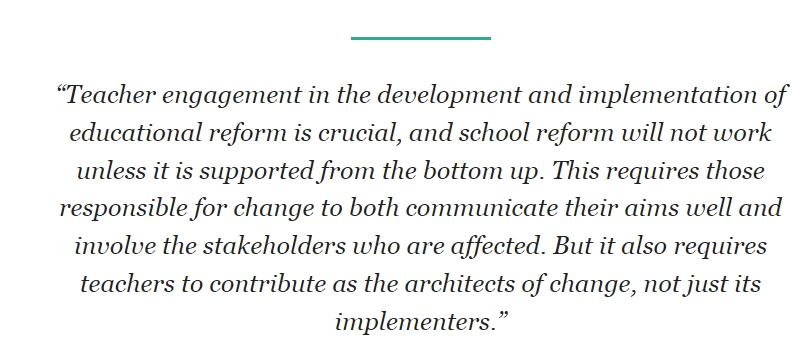
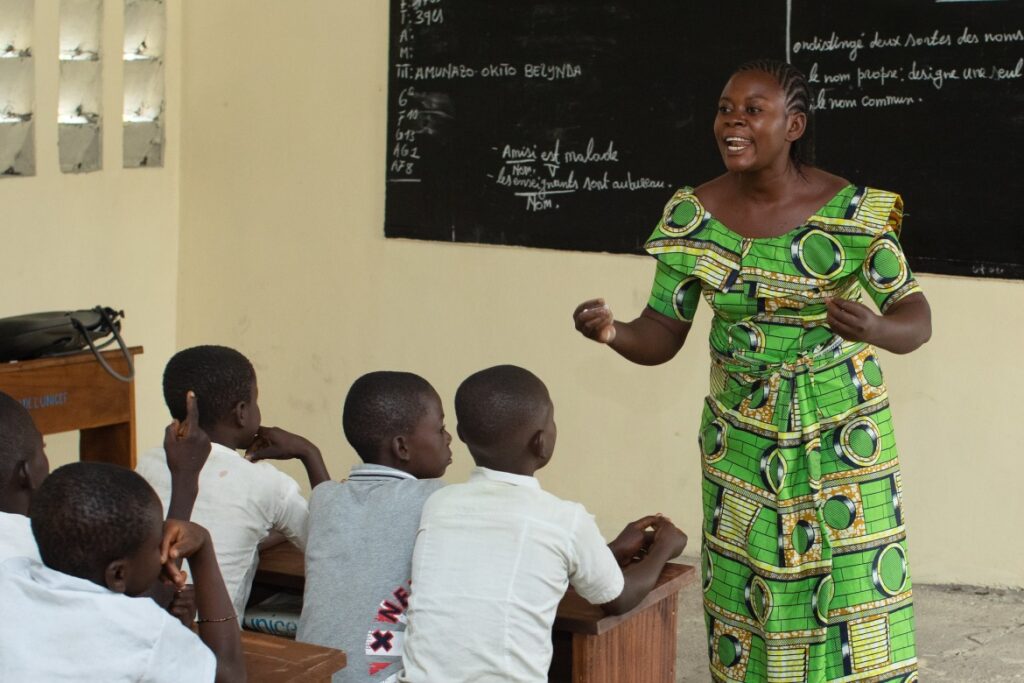
Accountability in reform: How teachers can participate in the partnership compact process
GPE helps partner countries transform their education system by identifying the key barriers to change and agreeing on a priority reform with the potential to deliver tangible progress on education outcomes.
A partnership compact outlines this priority reform and how partners will work together to implement it, including through funding from GPE. GPE advocates for teacher involvement in the partnership compact’s development, as well as in broader sector planning, joint monitoring and policy processes, through their inclusion in local education groups.
The role of teachers at a country level is context-specific and depends on how local education groups are organized as well as how open governments and other partners are to engaging teacher organizations. But GPE is committed to making progress on meaningful teacher representation in policy dialogue and collaborating closely with teacher representatives across partner countries, including through federations such as Education International at the global level.

Teacher associations can be involved in partnership compacts in several ways. In Sierra Leone, extensive national consultations were undertaken with teachers, administrators, students from teacher training institutions and teacher unions, to achieve the compact’s focus on foundations of learning for all.
In Comoros, where the compact focuses on leadership for equitable, inclusive and resilient schools, discussions were held with the teachers' union to solicit their inputs and generate interest as well as support for the prioritized reform.
In Tajikistan, teacher representatives were brought on board to the local education group as part of developing a compact and implementing the priority reform focused on competency-based learning.
It’s notable that many partnership compacts focus on teachers and quality teaching. For example, Tanzania’s compact has a strong attention on teacher workforce planning and management.
In Chad, the compact focuses on teacher mastery of content and pedagogy through improved training, ongoing support from principals and educational advisors, better teacher management (including recruitment, deployment and motivation) and more gender parity in the teaching force.
In the Democratic Republic of Congo, the objective is to make the teaching profession more attractive through strengthening recruitment, professional development and improving the teaching environment.
While several countries are making efforts to include teachers in policy dialogue, for example through working groups addressing teacher issues, there is still progress to be made. GPE stands ready to support partner countries in this journey, ensuring that the voice of teachers is reflected and uplifted in delivering the education children need.

